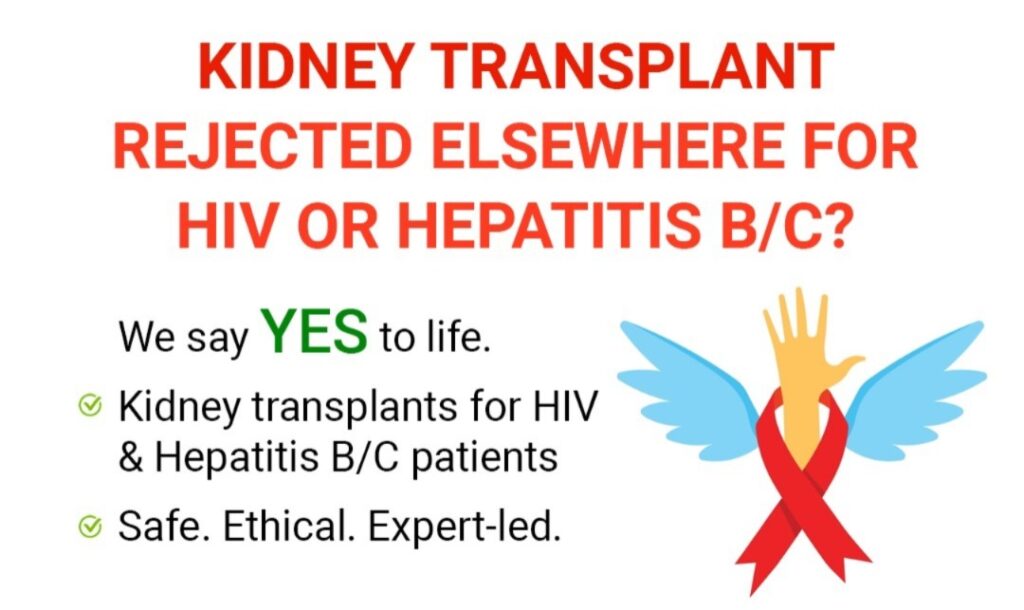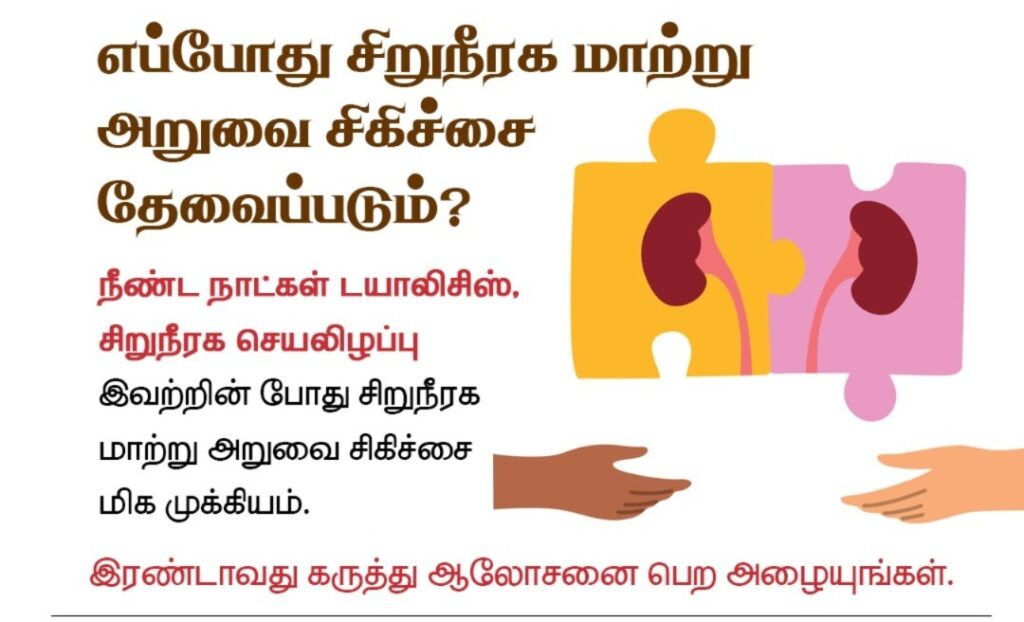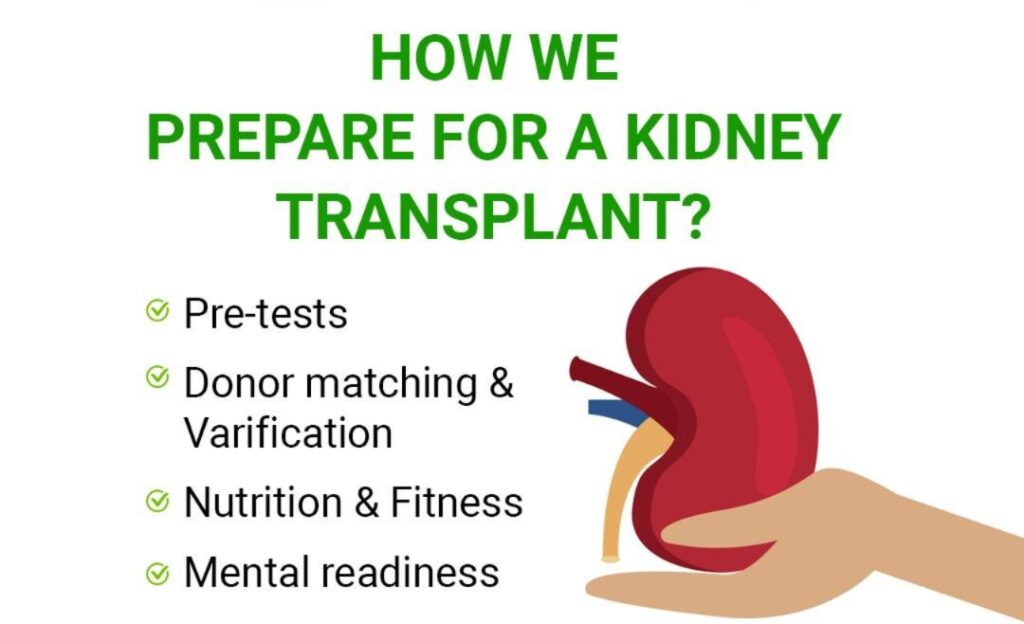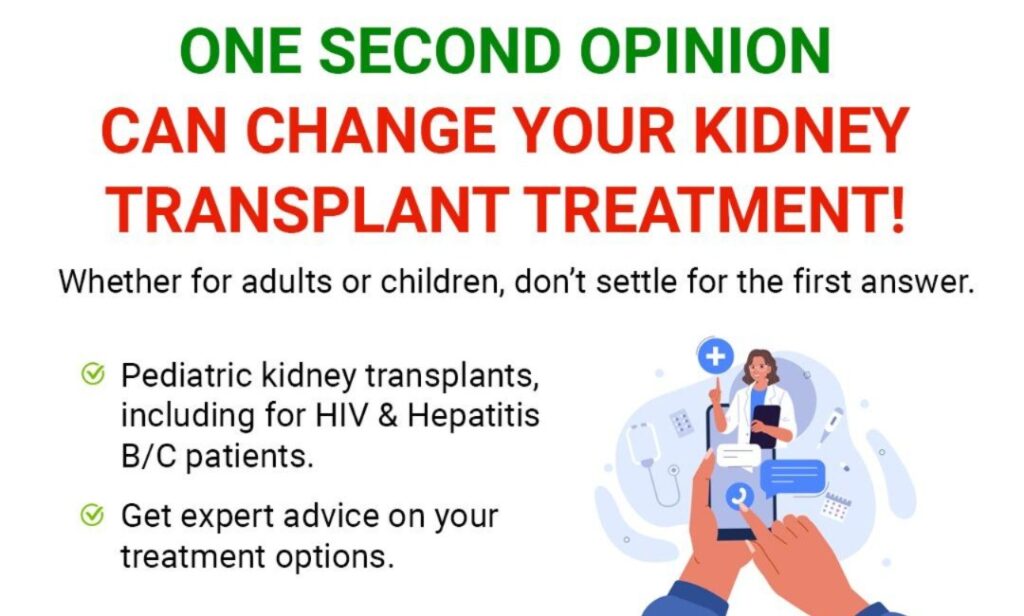Best Kidney Transplant Hospital in Erode
Kalyani Kidney Care Centre is proud to be recognized as the best kidney transplant hospital in Erode, delivering advanced live-related and cadaveric kidney transplants since 2013 under the expert leadership of Dr. M. Prabhakar, MBBS, MS, DrNB (Urology) and his skilled team.
As the first NABH-accredited kidney transplant centre in the region, we have successfully completed over 138 kidney transplants, combining modern surgical techniques, high-precision equipment, and compassionate patient care to achieve exceptional success rates.
High-risk pediatric kidney transplants made possible with expert care and advanced technology at Kalyani Kidney Care Centre.
Kidney transplant for HIV and Hepatitis B/C patients performed safely with specialized protocols and expert care at Kalyani Kidney Care Centre.



Why we are the Best Kidney Transplant Hospital in Erode?
- First NABH-accredited Kidney Transplant Hospital in Erode
- 138+ successful kidney transplants since 2013
- Expertise in Live Donor & Cadaveric Kidney Transplants
- Fully equipped Transplant ICU & Modular Operation Theatres
- Comprehensive dialysis, nephrology, and transplant follow-up care
- Multidisciplinary approach ensuring personalized treatment plans led by Dr. M. Prabhakar, MBBS, MS, DrNB (Urology) and team
Our mission is to restore health, improve quality of life, and offer new hope to patients suffering from kidney failure.
Who Needs a Kidney Transplant?
Kidney transplantation is the preferred treatment for patients with End Stage Renal Disease (ESRD). It helps patients stop dialysis, improves overall well-being, and offers freedom from dietary and fluid restrictions.
You may need a kidney transplant if:
- You are diagnosed with chronic kidney disease or kidney failure
- Dialysis is no longer effective or is affecting your quality of life
- You are otherwise healthy enough to undergo surgery
Types of Kidney Transplants We Perform
- Live-Related Kidney Transplant – Donor is usually a close relative such as a sibling or parent.
- Cadaveric Kidney Transplant – Kidney is received from a deceased donor through authorized organ sharing networks.
Kidney Transplant Process at Our Hospital
- Evaluation & Eligibility – Comprehensive health assessment, blood tests, tissue typing, and counseling.
- Donor Matching – Ensuring blood group compatibility and minimizing rejection risks.
- Surgery – Performed by highly skilled transplant surgeons in a sterile modular OT.
- Post-Operative Care – Intensive monitoring in our NABH-accredited ICU.
- Long-Term Follow-Up – Regular check-ups, lab tests, and medication adjustments to ensure the kidney functions well for years.

Success Rates & Experience
With 138 successful kidney transplants and a strong team of specialists, we consistently achieve high patient survival and graft survival rates. Our experience and precision in surgical techniques make us a best kidney transplant hospital in Tamil Nadu.
Facilities at Kalyani Kidney Care Centre
- NABH-accredited kidney transplant unit
- Advanced dialysis wing with multiple stations
- State-of-the-art transplant ICU
- 24×7 nephrology and critical care support
- In-house laboratory & diagnostic imaging
- Patient counseling & support groups
Why Patients Trust Us
Being the best kidney transplant hospital in Erode means more than just successful surgeries — it’s about lifelong patient support. We offer:
- More than a decade of dedicated kidney care
- Ethical, transparent, and patient-centered approach
- Comprehensive donor and recipient evaluation
- Post-transplant rehabilitation and diet management
Second Opinion at Best Kidney Transplant Hospital in Erode
Choosing the right hospital for your kidney transplant is a crucial decision. At Kalyani Kidney Care Centre, known as the best kidney transplant hospital in Erode, we also provide expert second opinion consultations. Our experienced team reviews your medical history and diagnostic reports thoroughly to offer unbiased advice and personalized treatment options. Whether you are exploring transplant possibilities or seeking confirmation of your current treatment plan, our second opinion service ensures you make informed decisions with confidence.

Meet Our Expert Kidney Transplant Team
At Kalyani Kidney Care Centre, our success is driven by a highly skilled and compassionate medical team committed to delivering the best care possible.
Dr. M. Prabhakar, MBBS, MS, DrNB (Urology)
Lead Transplant Surgeon
With extensive expertise in urology and kidney transplantation, Dr. Prabhakar leads our surgical team. His precision and experience ensure advanced live donor and cadaveric kidney transplant procedures with excellent patient outcomes.
Dr. P. Shrijjaa, MD (General Medicine), DM (Nephrology)
Consultant Nephrologist
Dr. Shrijjaa specializes in nephrology and plays a critical role in patient evaluations, dialysis management, and long-term post-transplant care, ensuring optimal kidney function and patient well-being.
Nephrology Team
Our experienced nephrologists work closely with the transplant surgeons to provide comprehensive care throughout the transplant journey.
Anesthesiology and Critical Care
A dedicated team of anesthesiologists and critical care specialists provide comprehensive perioperative support to ensure patient safety throughout the transplant process.
Support Staff
From transplant coordinators to dietitians, counselors, and nursing staff, every team member plays a vital role in delivering personalized care and support during your transplant journey.
Together, our multidisciplinary team at Kalyani Kidney Care Centre works seamlessly to provide holistic, patient-centered kidney transplant care, making us the best kidney transplant hospital in Erode.
Choose the Best Kidney Transplant Hospital
in Erode
If you are searching for the best kidney transplant hospital in Erode, Kalyani Kidney Care Centre offers unmatched expertise, NABH-certified safety standards, and a proven track record of transforming lives. From the first consultation to long-term follow-up, we are committed to excellence, safety, and compassionate care every step of the way.


